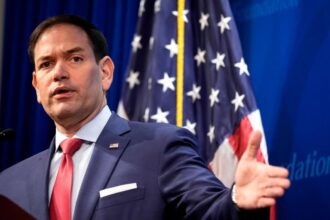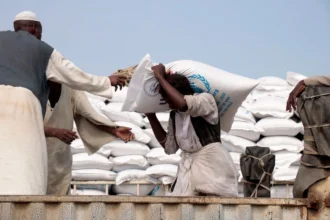In a stunning turn of U.S. foreign policy, the Biden administration—represented by Secretary of State Marco Rubio—has revoked all active visas issued to South Sudanese nationals, citing escalating violence and governance failures in the East African nation.
The controversial announcement, made during a press briefing, marks a significant deterioration in U.S.-South Sudan relations and comes amid growing frustration over South Sudan’s lack of progress toward peace, democratic governance, and human rights reforms.
“Every country must accept the return of its citizens in a timely manner when another country, including the United States, seeks to remove them,” Rubio said.
“South Sudan’s transitional government has failed to fully respect this principle.”
Who’s Affected by the Policy?
The visa revocation affects government officials, students, business professionals, medical travelers, and members of the South Sudanese diaspora, including individuals pursuing educational and humanitarian opportunities in the U.S.
The broad scope of the measure is raising alarms among immigration advocates and community leaders, who fear:
-
- Family separations
-
- Disruptions to ongoing education and healthcare access
-
- Deportations of individuals with no current ties to political unrest
Diaspora Response: “Collective Punishment”
Outrage has erupted in diaspora hubs like Omaha, Minneapolis, and Washington, D.C., where South Sudanese communities are denouncing the move as inhumane and short-sighted.
“This is collective punishment for the failures of a corrupt government that many of us fled from,” said one community leader in Minneapolis.
“We need U.S. leadership to support peace and human dignity, not turn its back on the people.”- Advertisement -
🇸🇸 A Fragile Nation Still at War with Itself
South Sudan, which gained independence from Sudan in 2011, has been mired in intermittent civil war, political gridlock, and ethnic violence. Despite a 2018 peace deal, the transitional government—led by President Salva Kiir—has failed to implement key reforms or hold promised elections.
Washington’s growing impatience with Kiir’s government includes concerns over:
-
- Rampant corruption
-
- Human rights violations
-
- Suppression of civil society
-
- Continued delays in democratic transition
A Shift from Previous Policy
The move contrasts sharply with the Biden administration’s earlier decision in 2023 to grant Temporary Protected Status (TPS) to South Sudanese migrants, shielding them from deportation due to the country’s ongoing instability.
Now, with the revocation of visas, even those previously offered protection could face uncertainty and displacement—an outcome human rights organizations warn could further destabilize vulnerable communities.
What Happens Next?
While the State Department has not clarified whether humanitarian exemptions will be granted, pressure is mounting on the U.S. government to reverse or modify the decision, particularly as global attention returns to East Africa’s growing humanitarian crisis.
Immigration lawyers and diaspora organizations are urging affected individuals to seek legal counsel immediately and to monitor updates from USCIS and the State Department.










